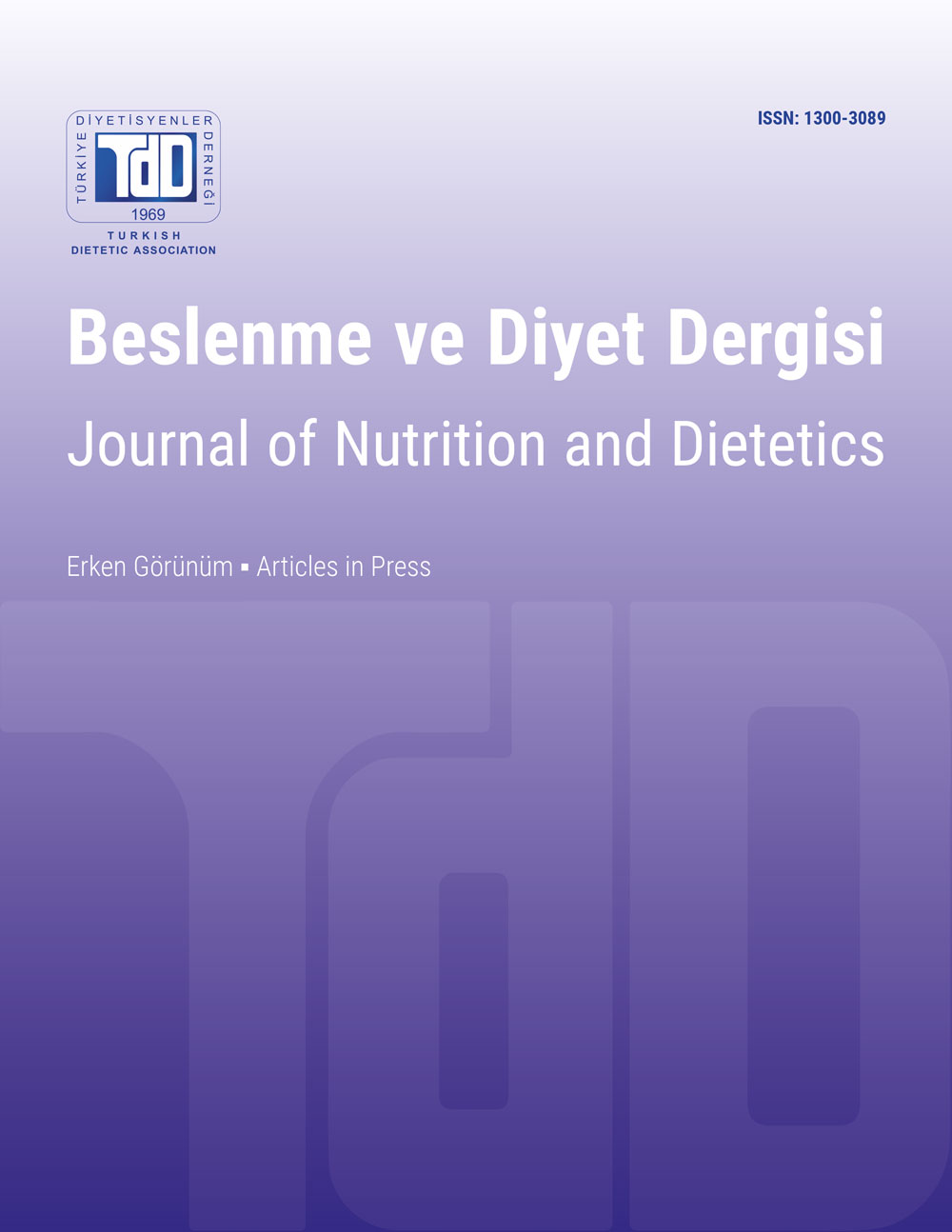A Study on the Relationship Between Various Characteristics of Adult Individuals and Food Disgust: The Case of Türkiye
DOI:
https://doi.org/10.33076/2024.BDD.1868Keywords:
Food disgust scale, food refusal, disgust, eating disordersAbstract
Aim: The aim of this study was to examine the relationship between food aversion and various characteristics of adult individuals in Türkiye.
Subjects and Method: Between June and December 2023, 639 volunteer adults living in Türkiye participated in the study. A questionnaire form including 13 demographic and general information questions, 9 information questions determining dietary habits and the “Food Disgust Scale (FDS)” consisting of 32 questions was applied to the participants online. In addition to demographic data such as gender, age, education and income status, the relationships between variables such as various eating habits, Body Mass Index (BMI) and Food Disgust Scale scores were examined.
Results: The mean age of the individuals was 25.8±7.4 years and the majority of them were between the ages of 18-24 (66.8%), female (77.5%) and single (78.6). In the statistical analysis, it was found that women (p<0.001), those between the ages of 18-24 (p<0.05), singles (p<0.001), and those who were not employed (p<0.05) had higher food aversion scale scores in many sub-dimensions of the scale and in total. The food disgust scale scores of those who had previously experienced food poisoning were found to be lower (p<0.05). In addition, although the food disgust scale scores of the participants decreased as the frequency of eating out increased, this was not found to be statistically significant (p>0.05). Individuals in the normal BMI range were found to have higher food disgust scores compared to slightly obese and obese individuals (p<0.05). Finally, no significant relationship was found between the participants’ education level and income level and food disgust (p>0.05).
Conclusion: In this study, the relationship between various characteristics of adult individuals and food aversion was examined and statistically significant relationships were found between many factors and food disgust. Although there are many reasons behind food disgust, it is an important defence mechanism for human health from a hygienic point of view. However, factors that trigger aversion behaviours can lead to eating disorders. Therefore, nutrition education needs to be widespread and implemented from the basic level.

